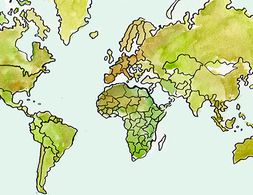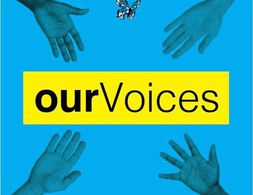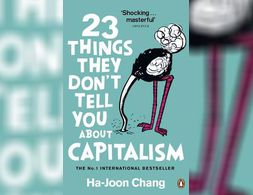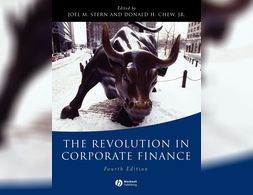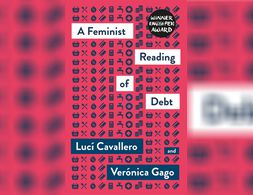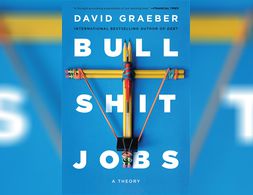✕
486 results
Environmental catastrophe looms large over politics: from the young person’s climate march to Alexandria Ocasio-Cortez’s Green New Deal, increasing amounts of political space are devoted to the issue. Central to this debate is the question of whether economic growth inevitably leads to environmental issues such as depleted finite resources and increased waste, disruption of natural cycles and ecosystems, and of course climate change. Growth is the focal point of the de-growth and zero-growth movements who charge that despite efficiency gains, increased GDP always results in increased use of energy and emissions. On the other side of the debate, advocates of continued growth (largely mainstream economists) believe that technological progress and policies can ‘decouple’ growth from emissions.
On July 2020 ZOE-Institute published a unique platform for transformative policymaking: Sustainable Prosperity. Building on insights from new economic thinking the platform provides knowledge about ideas, arguments and procedures that support effective promotion of political change. It aims to strengthen change makers in public policy institutions, who are working on an ambitious green and just transition. As such, it provides convincing arguments and policy ideas to overcome the reliance of economic policy on GDP growth
Despite the Doha declaration of November 2001, the failure to start a new round of global trade negotiations at Seattle in December 1999 and the hostility of protesters to the trade liberalization process and growing global economic and social disparities was a wake-up call for the World Trade Organisation (WTO).
This article investigates the set up of the CFA franc zones, its ties to French neocolonialism and its ability to further breed dependency in the former colonies.
How does fiscal policy work and which dimensions have to be considered? In this short text, you can learn about the difficulty of juggling different dimensions and which optimal rules exist at the micro and macro level.
In this podcast, Laura Basu speaks with a range of expert academics and public speakers – such as Jayati Ghosh, Yanis Varoufakis, Walden Bello, and Ashish Kothari about how the rules of the global economy are fostering the inequality and underdevelopment we see today.
Exploring Economics, an open-source e-learning platform, giving you the opportunity to discover & study a variety of economic theories, topics, and methods.
This course focus on the behaviour of individuals from an pluralist economic and an interdisciplinary bevavioural science apprach.
Exploring Economics, an open-access e-learning platform, giving you the opportunity to discover & study a variety of economic theories, topics, and methods.
After completing the module, participants should have gained a basic understanding of the economic school of thought referred to as "Modern Monetary Theory" and should be able to analyze the monetary processes at play in the economy and evaluate fiscal and monetary policy decisions from an MMT-perspective.
Completing the Economics of Discrimination module, the students should have acquired knowledge and understanding of the existing similarities and differences of the definition and analysis of discrimination across economic theory and cultural theory.
The article reviews the effects that the War in Ukraine will have for the global economy.
In this short essay, Jayati Ghosh gives an overview over the multiple ways in which the economic "fall-out" of the War in Ukraine is hitting economies and societies in the developing world.
Education policy seeks to ensure equality in access, equality within the classroom and in teaching- learning processes, and equality in outcomes. This course encourages students to assess and evaluate the extent to which these objectives are met in practice and the ways in which educational outcomes are shaped by, as well as alter, gendered social norms.
In this class we will explore how globalization shapes and is shaped by gender norms with a particular focus on questions related to ‘work,’ mobility and well-being.
This teaching pack focuses on the practice and real-world activities of central banks. It assumes students have a grasp of basic macroeconomic concepts already, and is therefore most suitable to be used at the end of introductory macro courses, or in more advanced macro or monetary economics courses.
In his 2010 published book “The Enigma of Capital and the Crises of Capitalism” multi-talented US geographer, anthropologist and Marxist economist David Harvey aims to analyse the capitalist system that has shaped western society and the globalized world of today.
'This Cambridge professor delights in paradox. And myth-busting . . . he does this with charm and a desire to see how things work in the real world' Guardian, 'In Praise of Ha-Joon Chang' In this revelatory book, Ha-Joon Chang destroys the biggest myths of our times and shows us the truth about how the world really works, including- there's no such thing as a free market.
This book arose from our conviction that the NNS-DSGE approach to the analysis of aggregate market outcomes is fundamentally flawed. The practice of overcoming the SMD result by recurring to a fictitious RA leads to insurmountable methodological problems and lies at the root of DSGE models’ failure to satisfactorily explain real world features.
Adam Smith's The Wealth of Nations provided the first, most influential and lasting explanation of the workings of modern economics. But with his focus on "the market" as the best mechanism for producing and distributing the necessities of life, Smith's concepts only told part of the story, leading to flawed economic models that devalue activities that fall outside of the market's parameters of buying and selling.
This book presents recent thought on market efficiency, using a complex systems approach to move past equilibrium models and quantify the actual efficiency of markets.
The Elgar Companion to Neo-Schumpeterian Economics surveys the achievements of the most visible scholars in this area. The contributions to the Companion give both a brief survey on the various fields of neo-Schumpeterian economics as well as insights into recent research at the scientific frontiers.
This Encyclopedia is a very first fully refereed A-Z compendium of the main principles, concepts, problems, institutions, schools and policies associated with political economy. Part 1 of a 2-volume set comprises entries from A-K.
The Revolution in Corporate Finance has established itself as a key text for students of corporate finance with wide use on a range of courses. Using seminal articles from the highly regarded Bank of America Journal of Applied Corporate Finance, it gives students real insight into the practical implications of the most recent theoretical advances in the field.
Winner of the Nobel Prize in Economics
Get ready to change the way you think about economics.
Get ready to change the way you think about economics.
Nobel laureate Richard H. Thaler has spent his career studying the radical notion that the central agents in the economy are humans--predictable, error-prone individuals. Misbehaving is his arresting, frequently hilarious account of the struggle to bring an academic discipline back down to earth--and change the way we think about economics, ourselves, and our world.
Until the end of the early 1970s, from a history of economic thought perspective, the mainstream in economics was pluralist, but once neoclassical economics became totally dominant it claimed the mainstream as its own. Since then, alternative views and schools of economics increasingly became minorities in the discipline and were considered 'heterodox'.
This fresh and unique textbook provides students and general readers with an introduction to economics from a new and much needed perspective, characterised by its uniquely pluralist, sustainable, progressive and global approach.
Unlike traditional textbooks, Introducing a New Economics contains the key concepts of pluralism, sustainability and justice. It provides students with the central questions covered by economics including resources, work, employment, poverty, inequality, power, capital, markets, money, debt and value.
With a focus on Chile, Pinochet’s Economic Accomplices: An Unequal Country byForce uses theoretical arguments and empirical studies to argue that focusing onthe behavior of economic actors of the dictatorship is crucial to achieve basic objectivesin terms of justice, memory, reparation, and non-repetition measures.
In this sharp intervention, authors Lucí Cavallero and Verónica Gago defiantly develop a feminist understanding of debt, showing its impact on women and members of the LGBTQ+ community and examining the relationship between debt and social reproduction.
In this book, the author, Intan Suwandi, engages with the question of imperialism through the specific channel of Global Value Chains.
A Theory From bestselling writer David Graeber a master of opening up thought and stimulating debate Slate a powerful argument against the rise of meaningless unfulfilling jobs and their consequences Does your job make a meaningful contribution to the world In the spring of 2013 David Graeber asked this question …
This lecture acts as an introduction to the Macroeconomics course (ECON 720) at John Jay College. Throughout the lecture, the classical and Keynesian conceptions of macroeconomic relationships are contrasted.
We use cookies on our website. Click on Accept to help us to make Exploring Economics constantly better!




